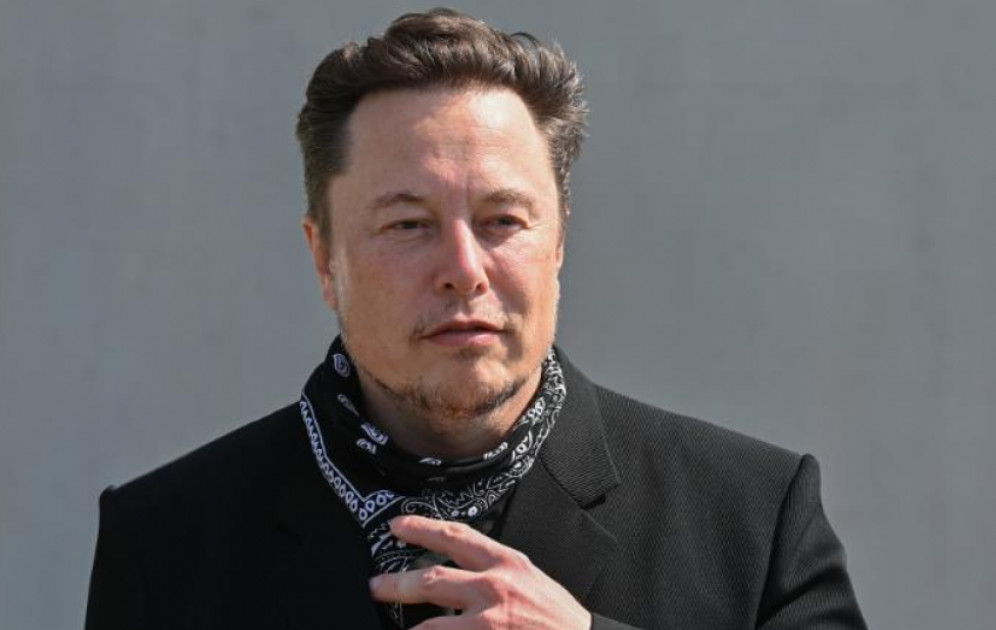Elon Musk's Neuralink confirms monkeys died in project, denies animal cruelty claims

Elon Musk's company, Neuralink, denies accusations of animal cruelty in its testing procedures.
Elon Musk's implant company Neuralink, which
aims to enable brains to connect and communicate with computers, has
acknowledged that monkeys died as part of its testing procedures, but denies
allegations of animal cruelty.
In a blog
post on its website, Neuralink addressed the "recent
articles" that have "raised questions around Neuralink's use of
research animals at the University of California, Davis Primate Center"
(UC Davis) and said that "all novel medical devices and treatments must be
tested in animals before they can be ethically trialed in humans."
Macaque monkeys have been used in testing by
Neuralink as the company has been developing Bluetooth-enabled implantable
chips -- inserted into the monkey's brains -- that the company says can
communicate with computers via a small receiver.
In April last year, Neuralink claimed monkeys
can play Pong -- a computer game - using just their minds when it released a
video of Pager, a male macaque, moving a cursor onscreen without using a
joystick to do so.
The company said this was achieved after the
Neuralink chip fed the information from the monkey's neurons into a decoder,
which was then used to predict Pager's intended hand movements -- allowing the
output from the decoder to be used to move the cursor, instead of Pager
manipulating the joystick.
The statement by Neuralink
comes after the Physicians Committee for Responsible Medicine -- a US
non-profit that advocates alternatives to animal testing -- sent a letter to
the US Department of Agriculture (USDA) referencing violations and requesting
an investigation into what it called "apparent egregious violations of the
Animal Welfare Act related to the treatment of monkeys used in invasive brain
experiments."
The document says the experiments were
carried out pursuant to contractual agreements between UC Davis and Neuralink.
In the letter, which spans more than 700 pages, the Physicians Committee said
records it obtained for the 23 monkeys used in the experiments reflect a
"pattern of extreme suffering and staff negligence." The committee
said that the letter to the USDA is based on nearly 600 pages of what it calls
"disturbing" documents released after the committee filed an initial
public records lawsuit in 2021.
The Physicians Committee said in a press release
on February 10 that UC Davis received more than $1.4 million in funding from
Neuralink to carry out the experiments on the macaque monkeys.
CNN has contacted UC Davis and the Board of
Regents for comment. In a statement to KCRA 3, UC Davis spokesperson Andy Fell said: "The
research protocols were thoroughly reviewed and approved by the campus's
Institutional Animal Care and Use Committee (IACUC)." Fell added:
"The work was conducted by Neuralink researchers in facilities at the
California National Primate Research Center at UC Davis. UC Davis staff
provided veterinary care including round-the-clock monitoring of experimental
animals. When an incident occurred, it was reported to the IACUC, which
mandated training and protocol changes as needed."
On February 10, the Physicians Committee
says they filed a second public records lawsuit to compel the university to
release videos and photographs of the monkeys. Neuralink is not part of the
lawsuit.
In the lawsuit, the committee alleges that
staff at the university "removed pieces of the skulls of rhesus macaque
monkeys and inserted electrodes into the animals' brains."
The lawsuit alleges that monkeys were not
provided with adequate veterinary care and that an "unapproved
substance" known as BioGlue "killed monkeys by destroying portions of
their brains."
In Neuralink's blog, the company said there
was "one surgical complication involving the use of the FDA-approved
product (BioGlue)," and the monkey was euthanized.
In the lawsuit, the committee further alleges
that the University of California has declined to release photos and videos
of the experiments, saying the records belong to Neuralink, a private company
not subject to California's Public Records Act.
In a statement posted to Neuralink's website,
Neuralink said the company is "absolutely committed to working with
animals in the most humane and ethical way possible."
It also said that its "central mission
is to design an animal care program prioritizing the needs of the animals,
rather than the typical strategy of building for human convenience alone."
Neuralink said "the use of every animal
was extensively planned and considered to balance scientific discovery with the
ethical use of animals." In reference to the claims of euthanasia by the
Physicians Committee, Neuralink stated that "two animals were euthanized
at planned end dates to gather important histological data, and six animals
were euthanized at the medical advice of the veterinary staff at UC
Davis."
Neuralink said it made the decision to
partner with UC Davis in 2017 to conduct animal-based research. In 2020, Musk's
company opened an in-house 6,000-square-foot vivarium to house farm animals and
rhesus macaques, according to Neuralink's statement.
Neuralink said in the statement that it is
"never satisfied with the current standards for animal well being and we
will always push ourselves to do more for the animals that are contributing so
much to humanity."
Jeremy Beckham, research advocacy coordinator
with the Physicians Committee, said in the press release that documents used by
the committee in its letter to the USDA "reveal that monkeys had their
brains mutilated in shoddy experiments and were left to suffer and die."
Neuralink has previously said that the goal
of their research was to enable a person with paralysis to be able to use a
device like a computer or phone using only brain activity.
Want to send us a story? SMS to 25170 or WhatsApp 0743570000 or Submit on Citizen Digital or email wananchi@royalmedia.co.ke
Comments
No comments yet.


Leave a Comment